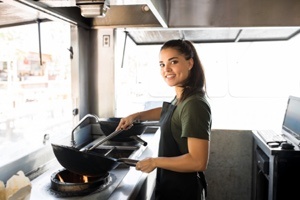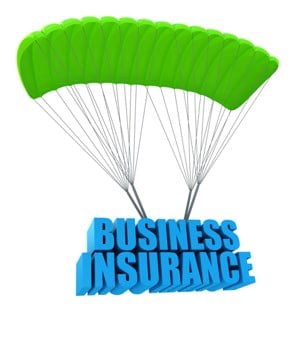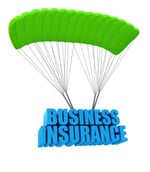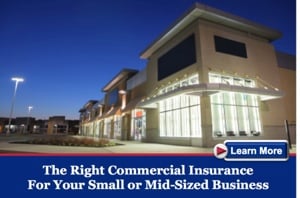 Your rental property is a significant investment, and the right Landlord Insurance can help protect that investment. There are steps you can take to help keep your rental property safe, thereby keeping your insurance and other costs down, attracting better tenants, and avoiding unnecessary headaches and hassles.
Your rental property is a significant investment, and the right Landlord Insurance can help protect that investment. There are steps you can take to help keep your rental property safe, thereby keeping your insurance and other costs down, attracting better tenants, and avoiding unnecessary headaches and hassles.
8 Tips to Keep Your Rental Property Safe
1. Install Fire Extinguishers
According to the National Fire Protection Association (NFPA), A fire department responds to a fire every 23 seconds in the U.S. at a cost of about $328.5 billion annually. Fire extinguishers can put out about 80% of all fires, yet less than half of Americans own a fire extinguisher. Install portable fire extinguishers in public spaces and each unit within your rental property and ensure they are easily accessible. Also, remember to regularly inspect the fire extinguishers to ensure they are in good working order.
2. Install Smoke Detectors
In Pennsylvania, landlords are required to provide smoke unless there's a fully automated sprinkler system. Smoke alarms save lives and money. According to the U.S. Fire Administration, "38% of residences had an operable alarm during a fire, but these fires accounted for only 8% of total property loss." Install smoke detectors, but also remember to inspect them regularly, and although legally it is the tenants' responsibility, consider replacing the batteries regularly.
3. Install Flood or Moisture Detectors
Flood or moisture detectors can alert you to small leaks before they cause damage and become more expensive repairs. And they can quickly alert you if you have a bigger problem like a burst pipe.
4. Install Adequate Lighting
Installing adequate lighting along walkways, entries, and public areas like hallways and lobbies can help prevent vandalism and theft. Good lighting can also minimize the risk of falls, reducing the risk of a lawsuit.
5. Secure Doors and Windows
Keep your tenants safe and reduce the risk of vandalism and theft by ensuring that all doors and windows are secure. Every window and door should have a lock. All individual units should have a deadbolt. Entry and exit doors should be made of steel or solid wood core. If your property is in a high-crime area, you may want to consider installing security bars on the windows.
6. Install Security Cameras
Security cameras have become more affordable than ever, and installing security cameras outside or in public areas can help protect your property. However, it's important to understand the laws in your area regarding the use of security cameras.
7. Screen Your Tenants
Screening helps ensure that you get tenants who are less likely to engage in vandalism or criminal activity or damage your property. Experts suggest having tenant screening criteria, such as no smoking, adequate income, no history of violent crimes, etc.
8. Get the Right Landlord Insurance
Sometimes, despite your best efforts, an injury or property damage occurs. It's best to consult an experienced insurance agent to ensure you have the right landlord insurance to protect your property. For example, did you know that if a rental unit is vacant for an extended time, you may be required to purchase Builder's Risk Insurance because the risks associated with a vacant property are different from those of an inhabited property; therefore, your regular landlord insurance policy may not cover the damage.
Do You Have the Right Insurance for Your Rental Properties?
Landlord insurance is essential for protecting your rental property; however, you don't want to overpay for insurance coverage. The independent insurance agents at American Insuring Group compare rates and coverage from competing insurance companies to find you the right policy at the right price!
Call today at (800) 947-1270 or (610) 775-3848, or connect with us online.



 As a contractor or restaurant owner, you’re probably looking for ways to cut costs and improve your bottom line. A Business Owners Policy – or BOP – is a flexible and affordable way to save on
As a contractor or restaurant owner, you’re probably looking for ways to cut costs and improve your bottom line. A Business Owners Policy – or BOP – is a flexible and affordable way to save on  Every business is at risk of a theft occurring. Fortunately, there are steps you can take to protect your assets, such as
Every business is at risk of a theft occurring. Fortunately, there are steps you can take to protect your assets, such as  If you are a restaurant owner or manager, you already understand how vital a clean kitchen is to the safety of your customers. But have you ever considered how a clean kitchen can save you money, such as lowering your
If you are a restaurant owner or manager, you already understand how vital a clean kitchen is to the safety of your customers. But have you ever considered how a clean kitchen can save you money, such as lowering your  As a business owner, you wear many hats, and sometimes all of the responsibilities can seem overwhelming.
As a business owner, you wear many hats, and sometimes all of the responsibilities can seem overwhelming. As a business owner or manager, you have enough to worry about – employees, sales, and the list goes on.
As a business owner or manager, you have enough to worry about – employees, sales, and the list goes on. In 2015, the food truck industry was valued at $856.7 million, and it is expected to grow to $996.2 million by 2020. There are many reasons for this growth including the seemingly easy entry into the restaurant business that it provides.
In 2015, the food truck industry was valued at $856.7 million, and it is expected to grow to $996.2 million by 2020. There are many reasons for this growth including the seemingly easy entry into the restaurant business that it provides. If you aren’t absolutely sure what you need to properly protect your food truck business, give the independent insurance agents at American Insuring Group a call.
If you aren’t absolutely sure what you need to properly protect your food truck business, give the independent insurance agents at American Insuring Group a call. Every business – no matter how big or how small – faces liability, but do you need general liability insurance? Regardless of how careful you are, accidents can (and do) happen causing damage to property and/or injury to employees, customers, vendors, etc.
Every business – no matter how big or how small – faces liability, but do you need general liability insurance? Regardless of how careful you are, accidents can (and do) happen causing damage to property and/or injury to employees, customers, vendors, etc.  What type of liability insurance and how much coverage you need to protect your business is very unique. But you don't have to go it alone!
What type of liability insurance and how much coverage you need to protect your business is very unique. But you don't have to go it alone! While
While 
 Every home-based business should be protected by commercial insurance. But the growth of the internet and other technological advancements –such as social collaboration tools and communication apps - have changed the way many of us do business today and significantly influenced the number of small businesses nationwide. In addition, the low start-up costs; the reduction in the cost of commuting, meals, and other expenses; the flexibility; and the savings realized from not maintaining a “storefront” are creating more home-based businesses. Sometimes home-based business owners forget that their homeowner's policy is unlikely to cover them for liabilities that can occur in their business.
Every home-based business should be protected by commercial insurance. But the growth of the internet and other technological advancements –such as social collaboration tools and communication apps - have changed the way many of us do business today and significantly influenced the number of small businesses nationwide. In addition, the low start-up costs; the reduction in the cost of commuting, meals, and other expenses; the flexibility; and the savings realized from not maintaining a “storefront” are creating more home-based businesses. Sometimes home-based business owners forget that their homeowner's policy is unlikely to cover them for liabilities that can occur in their business.






